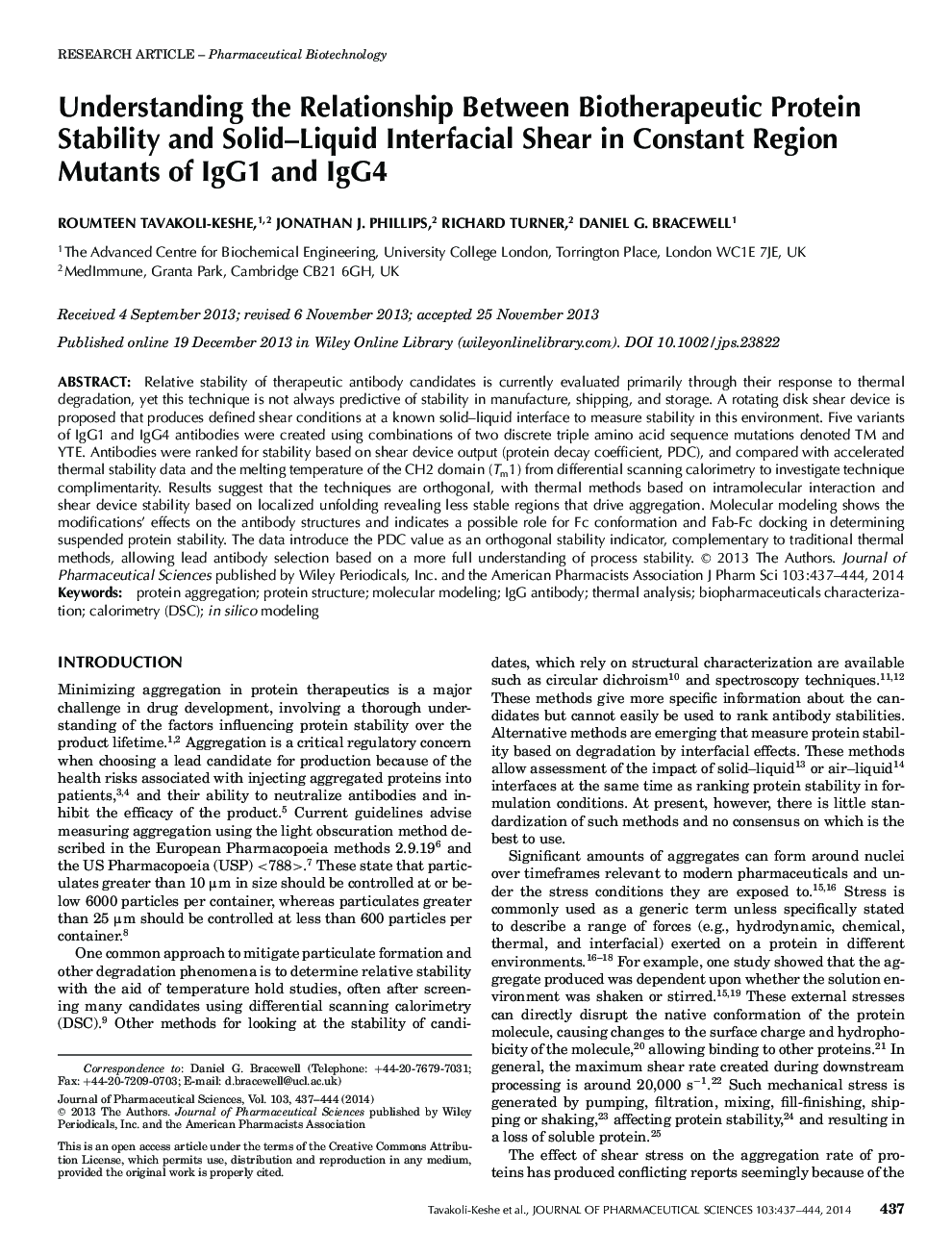| Article ID | Journal | Published Year | Pages | File Type |
|---|---|---|---|---|
| 10162590 | Journal of Pharmaceutical Sciences | 2014 | 8 Pages |
Abstract
Relative stability of therapeutic antibody candidates is currently evaluated primarily through their response to thermal degradation, yet this technique is not always predictive of stability in manufacture, shipping, and storage. A rotating disk shear device is proposed that produces defined shear conditions at a known solid-liquid interface to measure stability in this environment. Five variants of IgG1 and IgG4 antibodies were created using combinations of two discrete triple amino acid sequence mutations denoted TM and YTE. Antibodies were ranked for stability based on shear device output (protein decay coefficient, PDC), and compared with accelerated thermal stability data and the melting temperature of the CH2 domain (Tm1) from differential scanning calorimetry to investigate technique complimentarity. Results suggest that the techniques are orthogonal, with thermal methods based on intramolecular interaction and shear device stability based on localized unfolding revealing less stable regions that drive aggregation. Molecular modeling shows the modifications' effects on the antibody structures and indicates a possible role for Fc conformation and Fab-Fc docking in determining suspended protein stability. The data introduce the PDC value as an orthogonal stability indicator, complementary to traditional thermal methods, allowing lead antibody selection based on a more full understanding of process stability.
Keywords
Related Topics
Health Sciences
Pharmacology, Toxicology and Pharmaceutical Science
Drug Discovery
Authors
Roumteen Tavakoli-Keshe, Jonathan J. Phillips, Richard Turner, Daniel G. Bracewell,
